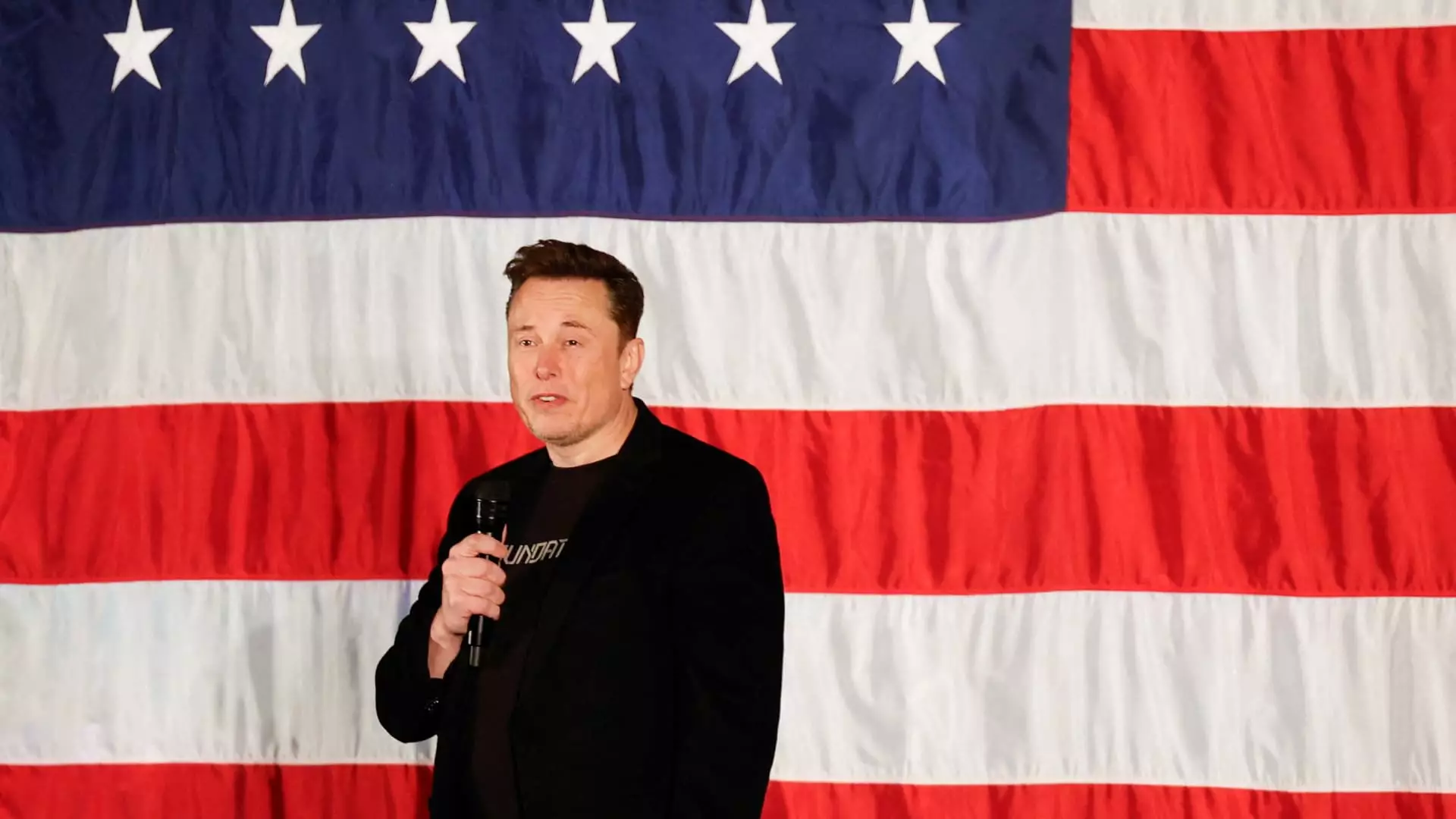In a striking turn of events, a federal judge in Pennsylvania has redirected a lawsuit aimed at billionaire Elon Musk and his political action committee, America PAC, back to state court. This lawsuit centers around a contentious $1 million daily giveaway to registered voters, a scheme that has drawn both alarm and intrigue from legal authorities and the public alike. Spearheaded by Philadelphia District Attorney Larry Krasner, the lawsuit alleges that Musk’s initiative constitutes an illegal lottery and represents an inappropriate attempt to sway voter sentiment in the upcoming presidential election.
Musk’s ambitious plan—offering substantial cash prizes to voters in key swing states—has raised eyebrows. It began with an announcement on October 19 that promised to distribute $1 million daily until Election Day to registered voters willing to sign petitions supporting the U.S. Constitution. The initiative’s immediate success saw the first three winners all hailing from Pennsylvania, lending an air of legitimacy to a concept that many experts argue could open the floodgates to legal challenges.
The crux of the legal tussle lies in the determination made by U.S. District Judge Gerald Pappert, who, in a decision issued just two days after the case was moved to federal court, stated that the lawsuit should remain within the jurisdiction of Pennsylvania’s legal framework. Pappert firmly noted that the arguments presented by Musk’s legal team, which aimed to invoke federal jurisdiction due to the political nature of the claims, fell short. According to Pappert, the essence of the legal questions raised revolved entirely around state law, underscoring that the motives behind the lawsuit do not dictate whether a case should be heard in a federal court.
Krasner’s office has expressed satisfaction with this judicial ruling. The move back to the Philadelphia County Court of Common Pleas paves the way for a potentially swift resolution to the matter. The Philadelphia District Attorney has been vocal in condemning what he contends are unfair and possibly illegal influences on voters, especially concerning significant issues surrounding the electoral process. His office is awaiting a hearing that could bring a halt to Musk’s financial incentives ahead of the presidential elections.
The Stakes and the Broader Context
The implications of Musk’s giveaway extend far beyond the realm of a mere promotional campaign; they touch on substantial legal and ethical concerns as to what constitutes acceptable behavior in electoral politics. Critics have pointed out that financial incentives can tilt the democratic playing field, especially in swing states where the stakes are astronomically high. Musk’s connections to the Trump campaign and the PAC’s affiliations add another layer of complexity, raising questions about whether these actions are a calculated attempt to manipulate voter loyalty.
Furthermore, the Pennsylvania law concerning lotteries, akin to many states, is stringent, prohibiting any form of gambling unless sanctioned by the state. The designation of Musk’s giveaway as an illegal lottery, as posited by Krasner, could evoke a severe backlash should the court rule in favor of such claims. The potential for consumer protection violations is another angle of scrutiny; consumers must be safeguarded against manipulative promotional tactics dressed up as democratic engagement.
As this legal drama unfolds, it highlights the precarious intersection of wealth, power, and democracy. The optics of a billionaire using his fortune to influence voter behavior raise ethical dilemmas that merit rigorous examination. Following the case’s return to state court, all eyes will be on the upcoming hearings, where arguments will be made regarding the legality of the giveaway.
The rapid series of legal maneuvers—from state court to federal and back again—has set the stage for a contentious battle. Krasner’s office insists it is preparing for a hearing to halt Musk’s operation, seeking a judicial response that could either affirm or dismantle this unorthodox political strategy. In a political climate charged with tension and division, this case serves as a poignant reminder of the complex dynamics that govern electoral processes and the legal consequences they can invoke.
The unfolding circumstances surrounding Musk’s public engagement encapsulate not only a high-stakes legal battle but also resonate deeply with concerns about the integrity of elections in America—an enduring topic of discussion and debate in contemporary discourse. As this saga progresses, it will undoubtedly prompt further scrutiny of how financial influence intersects with democratic practices in the United States.


Leave a Reply